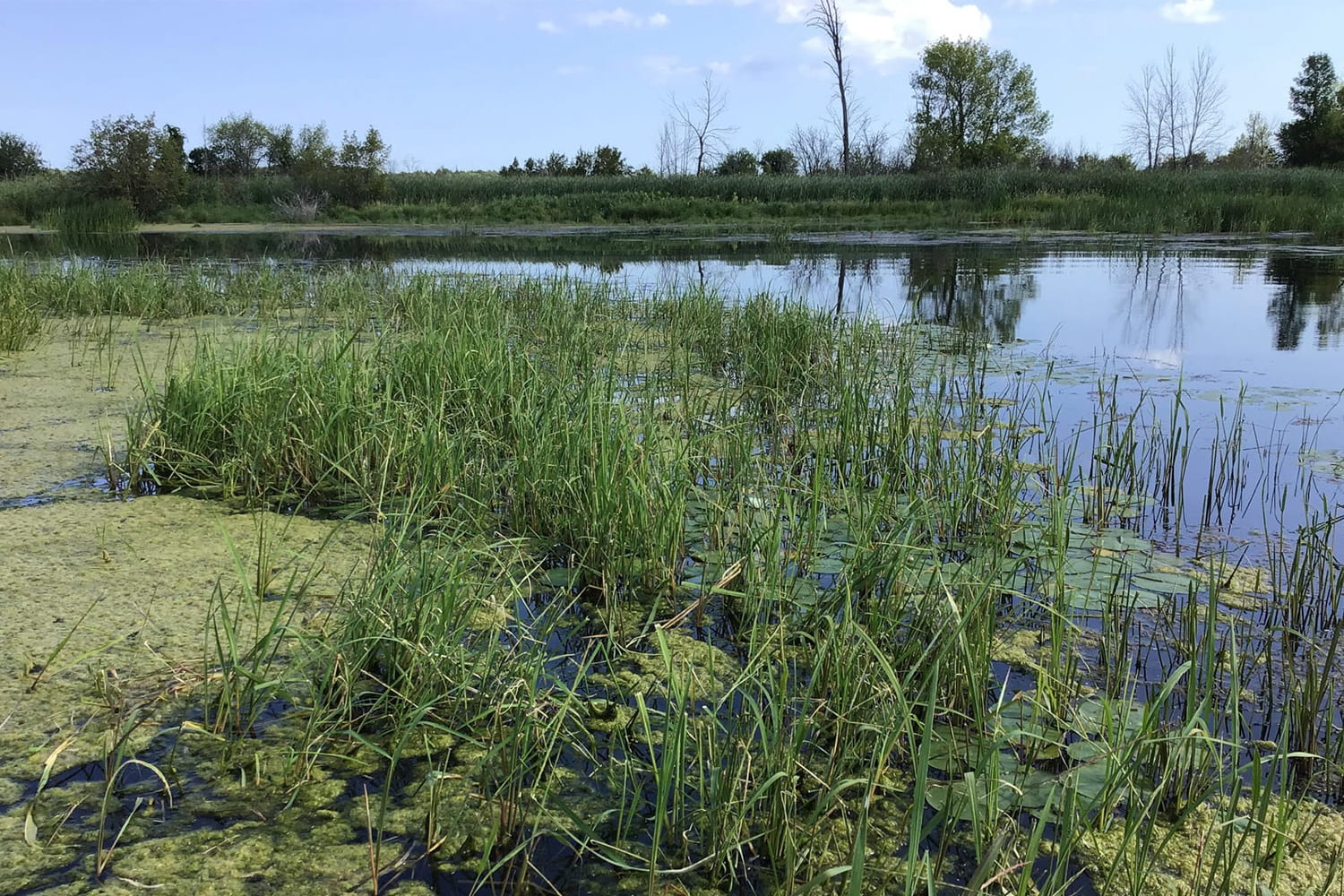Green Bay fall wild rice seeding planned for late October

Small teams of conservation professionals and volunteers from UW-Green Bay, Ducks Unlimited, U.S. Fish and Wildlife Service, Wisconsin Department of Natural Resources, UW-Madison Division of Extension, and others will seed 2,000 lbs. of wild rice at coastal wetlands in the bay of Green Bay during the week of October 26-30, 2020.
This year marks the fourth year of seeding effort as part of the restoration projects, informed by UW-Green Bay aquatic vegetation research in lower Green Bay. See past efforts. Wild rice or “manoomin” holds important traditional, economic, and spiritual value in the region for Wisconsin’s First Nation tribes.
Wild rice also benefits waterfowl as an important food source during fall migration and contributes to fish nursery habitat and ecological diversity in coastal wetlands. Historical records suggest the wetland grass occurred in the waters of the bay of Green Bay; however, rice has been uncommon to rare in coastal wetlands and tributaries in recent decades. UW-Green Bay graduate student research helps conservation partners learn more about wild rice seeding success and environmental conditions impacting aquatic vegetation.
Rice re-establishment is one of a series of restoration projects in lower Green Bay and along the Green Bay west shore to enhance coastal wetland habitat for fish and wildlife and improve the health of the bay. Participants will hand seed the rice at 6 sites in lower Green Bay and along the Green Bay west shore on the following dates:
- Monday, Oct. 26: Green Bay west shore: Seagull Bar State Natural Area and Oconto Marsh Wildlife Area & Oconto Sportsmen’s Club Tuesday
- Tuesday, Oct. 27: Lower Green Bay: Duck Creek and Ken Euers Nature Area
- Wednesday, Oct. 28- Suamico: Sensiba Wildlife Area & Barkhausen Waterfowl Preserve
- Thursday and Friday, Oct. 29 and 30, Weather make-up days
Media members may view seeding from an observation point on land at most locations. All participants and observers will be expected to follow COVID-19 safety guidelines. For more information about the project or the seeding effort, contact Green Bay Restoration Project Coordinator Amy Carrozzino-Lyon (carrozza@uwgb.edu, 920-465-5029).



